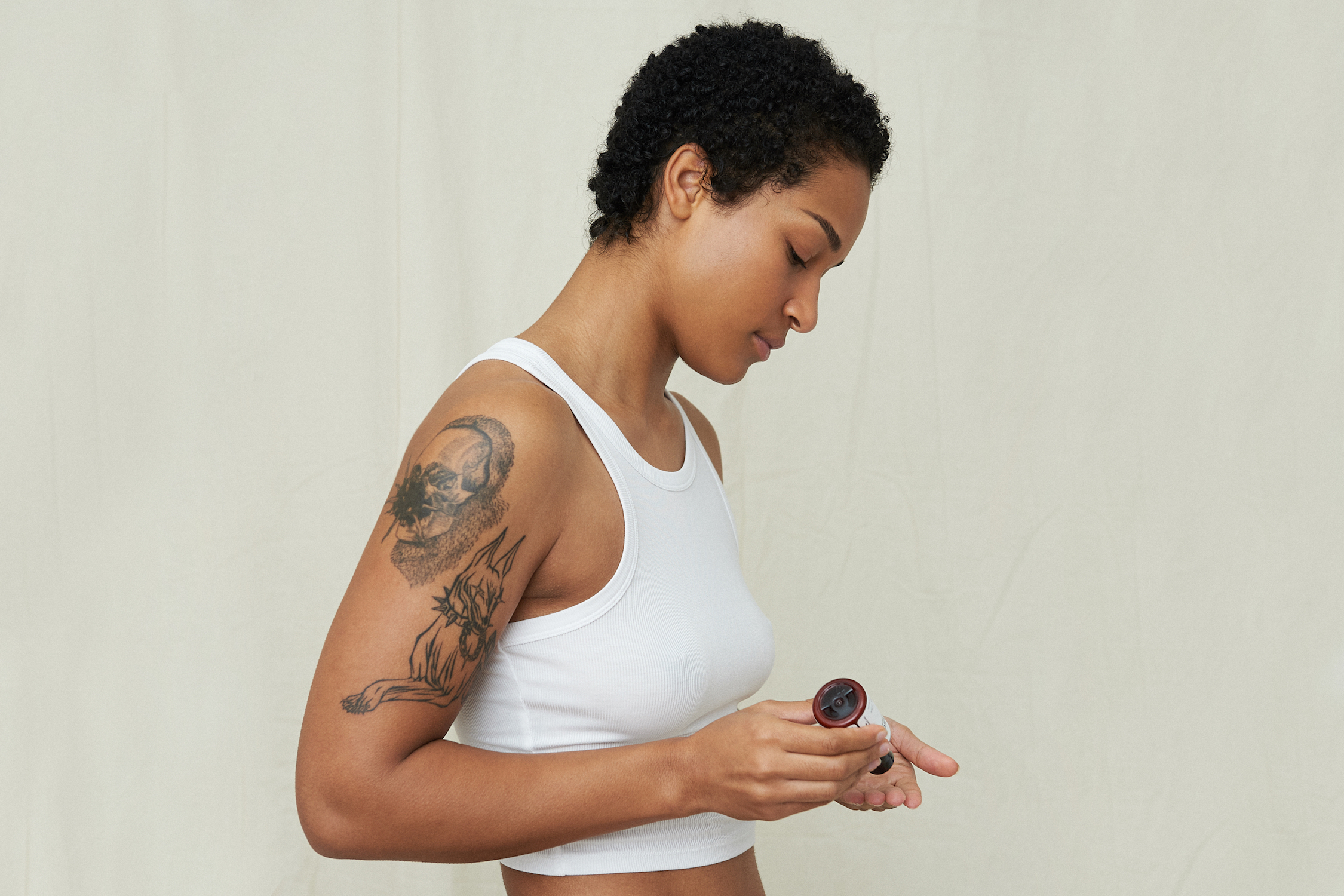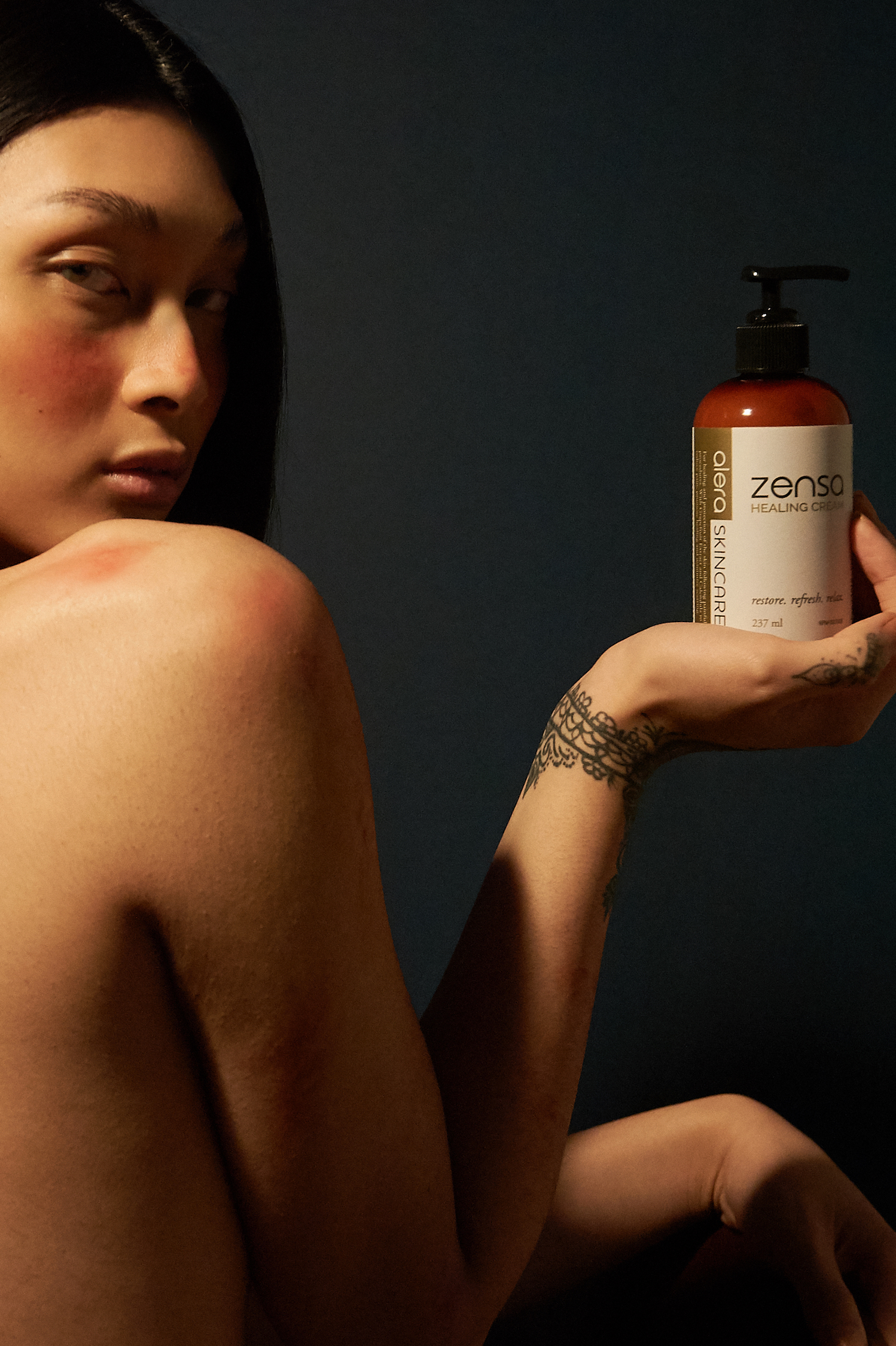Try These 8 Simple Habits To Prevent Dry, Itchy Skin
Try These 8 Simple Habits To Prevent Dry, Itchy Skin
Dry, itchy skin is irritating in every sense and while typically harmless, can diminish your quality of life. There are several causes of rough, tingling skin, ranging from allergic reactions to dehydrated skin and chronic inflammatory conditions, including eczema, psoriasis and rosacea. Every dry skin-related condition and treatment plan differs depending on the root cause, its duration and any coinciding symptoms.
Temporary rashes with easily detectable causes (such as an allergic reaction to a skincare product, bug bites or infection from a plant like poison ivy) and moisture depleted skin most often can be treated at home. However, if you suspect that you have a more severe or chronic underlying cause, seek advice from your doctor or dermatologist as soon as possible.
In either case, your everyday choices and routines can make all the difference to prevent cracked, scratchy skin for overall calmer skin. These rituals can also help manage and reduce your symptoms if you ever have a flare-up from a temporary or chronic condition. Here are some simple habits to help prevent dry, itchy skin.
Keep Your Skincare Simple
Especially if you have sensitive skin, it is important to stay conscious of the ingredients in your skincare (and makeup or hair products) that cause any drying, burning or itchiness. Opt for fragrance-free products whenever possible. When unsure how your skin will react to a new product, do a patch test on a small area to ensure that it won’t cause widespread inflammation.
Some common allergens include aluminum or other metals (found in deodorant or metallic cosmetics), facial acids (including salicylic acid, glycolic acid, and certain topical retinoids), sulfates (often included in shampoo, conditioners or body washes) and certain emollients or essential oils.
Fortunately, there are several swaps for harsher or potentially allergenic beauty products. There are several aluminum-free deodorants and cosmetics or sulfate-free hair and skincare products available (lower-grade aluminum options might be also worth trying out if natural options leave sweat stains). Your skin can sometimes build up a tolerance to facial acids when used in gradually higher amounts over time. However, if they still feel too harsh for your skin, try out a vitamin C or fruit enzyme peel (a non-chemical exfoliating scrub could work as well).
Those with ragweed pollen or nut allergies should avoid certain essential oils and emollients such as sunflower, calendula and coconut varieties.
Moisturize Frequently
Hydration is your best friend when it comes to preventing dryness and resulting in itchy skin. Dry skin occurs when the moisture barrier’s natural oils are depleted, leaving insufficient water or nutrients in your cells. If the skin is left depleted, it may start to feel raw and crack, making you more susceptible to irritation or infection.

Using a moisturizer daily helps to rehydrate the top skin layer and seal in moisture between skin cells. The most hydrating options tend to have a thicker consistency and contain less water. Many mineral oil-based products (like petroleum jelly) fit these criteria and provide affordable yet effective options.
Products rich in nutrients like vitamin E or linoleic acid (vitamin F) also are great options due to their anti-inflammatory properties. They prevent excess water loss, hydrate the skin and block outside irritants.
Limit Your Shower Time
Steamy showers can soothe the mind and muscles. However, over time, they can significantly dry out your skin. Avoid scalding hot water during your showers (or while washing your hands) because it strips too much of your skin’s natural oils from the moisture barrier. Regulating your shower’s water temperature is especially important when exfoliating. While exfoliation is helpful to remove dead skin cells and prevent dry skin, this practice also wears down this moisture barrier.
Use lukewarm water instead to stay clean without removing these essential oils from your skin’s top layer. Make sure to moisturize your body and hands after soaking in hot water. This habit helps seal in moisture between cells while the skin is still damp to prevent cracked skin or irritation.
Turn Down The Heat
On a similar note, regularly using a heater in your home dries out your skin and leaves the surface more vulnerable to premature aging and irritation. Indoor heaters remove the moisture from your skin (including in your mucus membranes) and destroy the moisture barrier, collagen and elastin in your skin. These effects can result in rougher, more wrinkled skin texture over time and redness and itchiness, especially if you have sensitive skin.
Turning down the heat isn’t always an option. Use a humidifier to add moisture back into the air and help reduce your skin’s moisture loss. Remember to also stay hydrated by drinking plenty of water and regularly apply a moisturizing lotion or balm.
Stay Out Of The Sun
Like the other heat sources discussed, the sun’s UV rays dry out the skin’s moisture barrier. Eventually, unprotected sun exposure can leave you with a rough skin texture with dry, flaky patches that itch and peel.

Along with sunburns, UV rays can also cause an allergic reaction, resulting in skin rashes or hives that leave the area with considerable redness, itchiness and a burning sensation.
Make sure to always apply sunscreen before going out into the sun to prevent these harmful effects. If it is too late this time around, apply aloe vera to soothe and hydrate the skin.
Manage Any Skin Conditions
Immune system-related skin issues, such as eczema or psoriasis are usually manageable when you have the proper habits in place. Despite each having unique characteristics, underlying inflammation is a common denominator among these conditions. Inflamed skin is particularly vulnerable to severe dryness, itchiness and redness that can become quite painful. If you believe that you have one of these conditions, consult with your doctor or dermatologist to see if you need any prescription-grade treatment.
Along with any medically advised treatment, healthy and careful skin hygiene can help prevent and manage flare-ups. Make sure to frequently moisturize (including immediately after washing your hands), wash with fragrance-free soaps and body products, use a humidifier and wear clothing in soft fabrics. These practices will hydrate and minimize potential irritants to protect and nourish the skin barrier.
Zensa Healing Cream is designed to provide relief for eczema and similar inflammatory skin conditions. It contains calendula and grapefruit oils to reduce irritation with soothing shea butter, cucumber extract and avocado oil to hydrate the skin.
Stress management and maintaining a healthy, balanced diet can also help control your chance of developing severe flare-ups.
If you start to experience symptoms, warm colloidal oatmeal baths and applying bandages to inflamed areas are helpful practices to reduce the discomfort, redness and itchiness associated with these conditions.
Clean Up Your Diet
While cliché, it’s true that healthy skin glows from within. Eating foods rich in water, antioxidants and healthy fats can help keep your skin hydrated, moisturized and have anti-inflammatory properties. Produce rich in vitamin A have moisturizing properties that promote skin renewal to prevent flaky patches, dryness and signs of aging. Vitamin C promotes collagen production and boosts your immune system to help keep your skin soft, smooth and supple. Some foods high in these two vitamins include sweet potatoes, carrots, broccoli, berries, kale and citrus fruits.

Healthy fats replenish the skin to prevent water loss and protect the moisture barrier. These nutrients promote immune function, cell regeneration and hydration. They are anti-inflammatory and are rich in vitamin E, which is known to reduce itchiness from dry skin. Fat-soluble vitamins (A, D, E, and K) need fats to be absorbed properly. Incorporate avocados, olive oil and various nuts or seeds to reap these benefits.
Get Regular Checkups
Your skin’s health depends on your overall well-being. Check-in with your doctor and dermatologist regularly to confirm that your dry or itchy skin is not a symptom of a more serious condition, such as anemia, diabetes, thyroid, liver or kidney issues. If your symptoms persist for at least six weeks, make an appointment with a medical professional right away. Your skin is your body’s largest organ and reflects your overall health. By ensuring that your immune system and vitals are optimal, healthy habits will reflect outwards and enable you to attain soft, calm and glowy skin.

